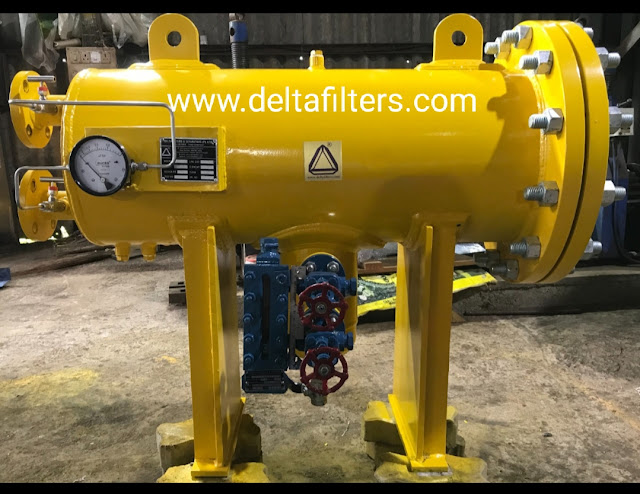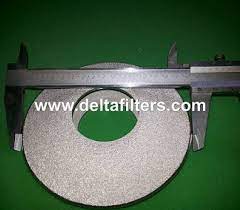6 Best Practices for CNG Filter Maintenance in Industrial Environments
Compressed Natural Gas (CNG) is gaining popularity for industrial applications due to its low cost and eco-friendliness. However, just like any other fuel, CNG is not entirely clean and may contain contaminants such as dust, water, and other impurities. To protect CNG equipment and ensure optimal performance, it is essential to incorporate filters to remove these contaminants from the fuel.
Keeping CNG filters in
good condition is critical for efficient operations and helps to prevent
equipment failure. This article outlines best practices for CNG filter
maintenance in industrial environments.
1. Follow the Manufacturer's
Guidelines
The manufacturer's guidelines should be the
first point of reference in maintaining CNG filters. They provide specific
instructions for installation, maintenance, and replacement of filters in
industrial applications. These guidelines may also offer guidelines and
recommendations for specific equipment brands or models based on the
manufacturer's performance testing. Therefore, it is crucial to follow the
manufacturer's instructions carefully when performing maintenance on CNG
filters.
2. Regular Inspection and
Cleaning
Regular inspection of filters is crucial to
maintain their performance and extend their life. CNG filters should be inspected
daily, weekly, or monthly, depending on the severity of the application. It is
useful to keep notes to establish a routine and keep track of maintenance
inspections.
Cleaning CNG filters is also critical to
ensure that the fuel remains free of contaminants. This can be achieved through
air-blowing, backwashing, or replacing the filter element. The cleaning process
should be carried out using a method recommended by the manufacturer. It is
important to note that cleaning should not compromise the filter’s efficiency
and integrity but instead enhance its performance.
3. Use of Proper Tools and
Materials
Proper tools and materials should be used
in maintaining CNG filters. When replacing filters, only the manufacturer's
recommended or equivalent parts should be used. This ensures that the parts fit
correctly and work correctly, avoiding the risk of equipment failure and power
interruption.
Using appropriate tools also contributes to
equipment safety and filter integrity. For instance, using pliers and spanners
can cause damage to filter connections, leading to gas leaks, and potential
safety issues.
4. Monitor and Replace
Filters Regularly
CNG filters should be monitored regularly
during operations. For instance, gauges should be installed to measure the
Pressure Drop (PD) across the filter element. A sudden increase in PD may
suggest filter blockage, necessitating prompt cleaning or replacement.
Filters should also be replaced regularly
based on manufacturer guidelines, environmental conditions, and equipment usage.
For example, dusty or humid conditions may require more frequent filter
replacements than in less challenging environments.
5. Train Operators on Proper
Maintenance
Training operators on appropriate CNG
filter maintenance procedures is essential in maintaining efficient operations
and ensuring equipment safety. For instance, operators should understand how to
monitor filters, identify signs of filter blockage, and perform routine
cleaning and replacement of filters.
Training can also help operators recognize
the importance of maintaining filters and their role in sustaining system
integrity and efficiency. With proper training, operators can perform minor
maintenance procedures, such as cleaning filters, avoiding costly service calls
and downtime.
6. Document Maintenance
Activities
Documenting CNG filter maintenance
activities is crucial for tracking performance, determining optimal filter
replacement intervals, and making educated decisions. For example, documented
data on when filters were changed and the filter performance can aid in
predicting when the next filter replacement is needed.
This data can also help to identify areas
where improvements can be made. For instance, if filters need replacement
sooner than expected, it may suggest a problem upstream that is contaminating
the fuel, and corrective measures may need to be taken.
Conclusion:
Proper maintenance of CNG filters is
critical in ensuring uninterrupted energy supply and preventing equipment
failures. Following the manufacturer's guidelines for CNG filter maintenance
and using appropriate tools and materials can help to maintain filters’
integrity and efficiency. Regular inspection, cleaning, and replacement of
filters are essential components of maintenance. Operators should receive
appropriate training to identify signs of filter blockage and carry out routine
maintenance procedures. Finally, documenting maintenance activities can aid in
predicting future CNG filter replacement needs and identifying areas where
improvements can be made. With the right maintenance practices, industrial
applications can enjoy the benefits of CNG while minimizing equipment downtime
and repair expenses.
.png)


Comments
Post a Comment